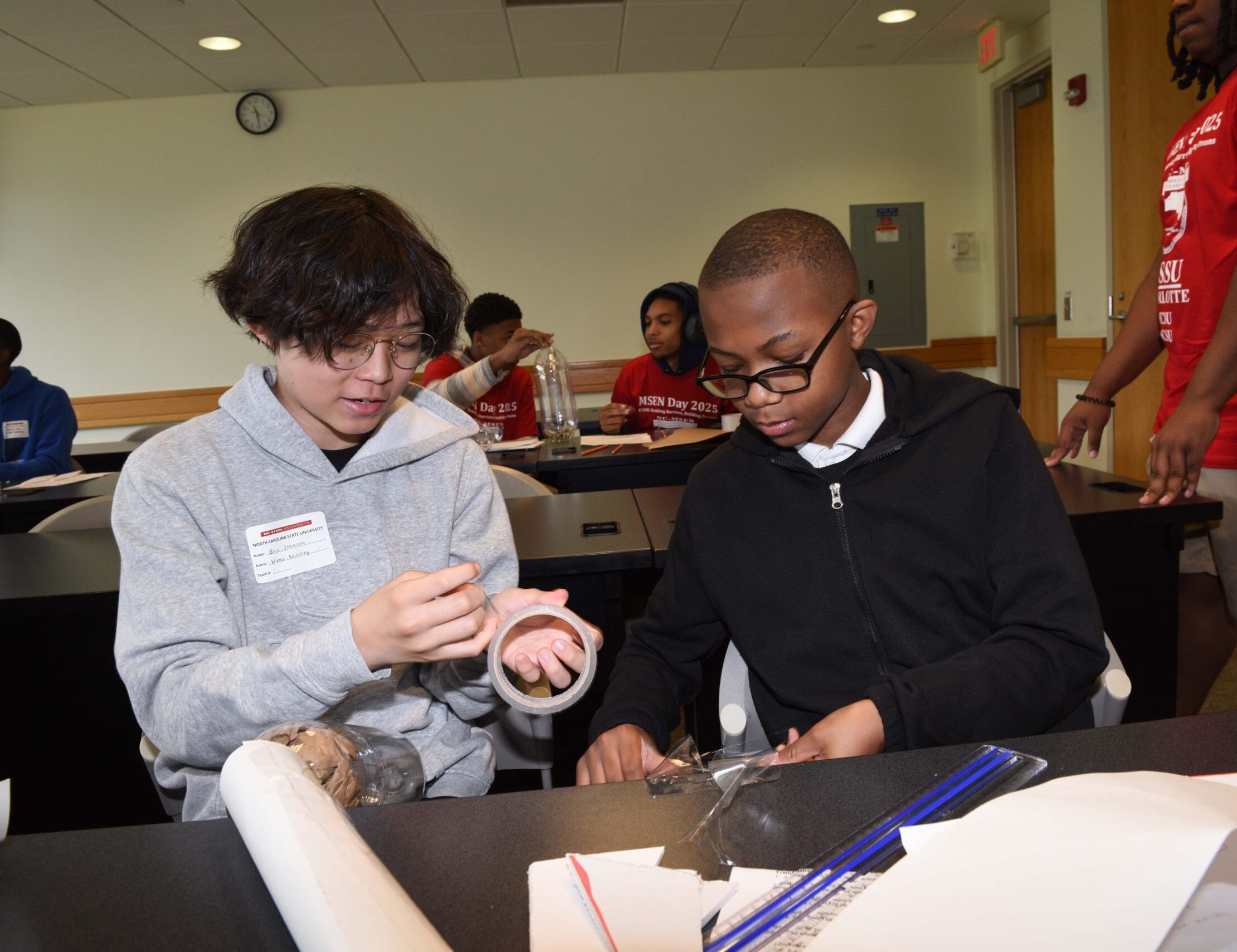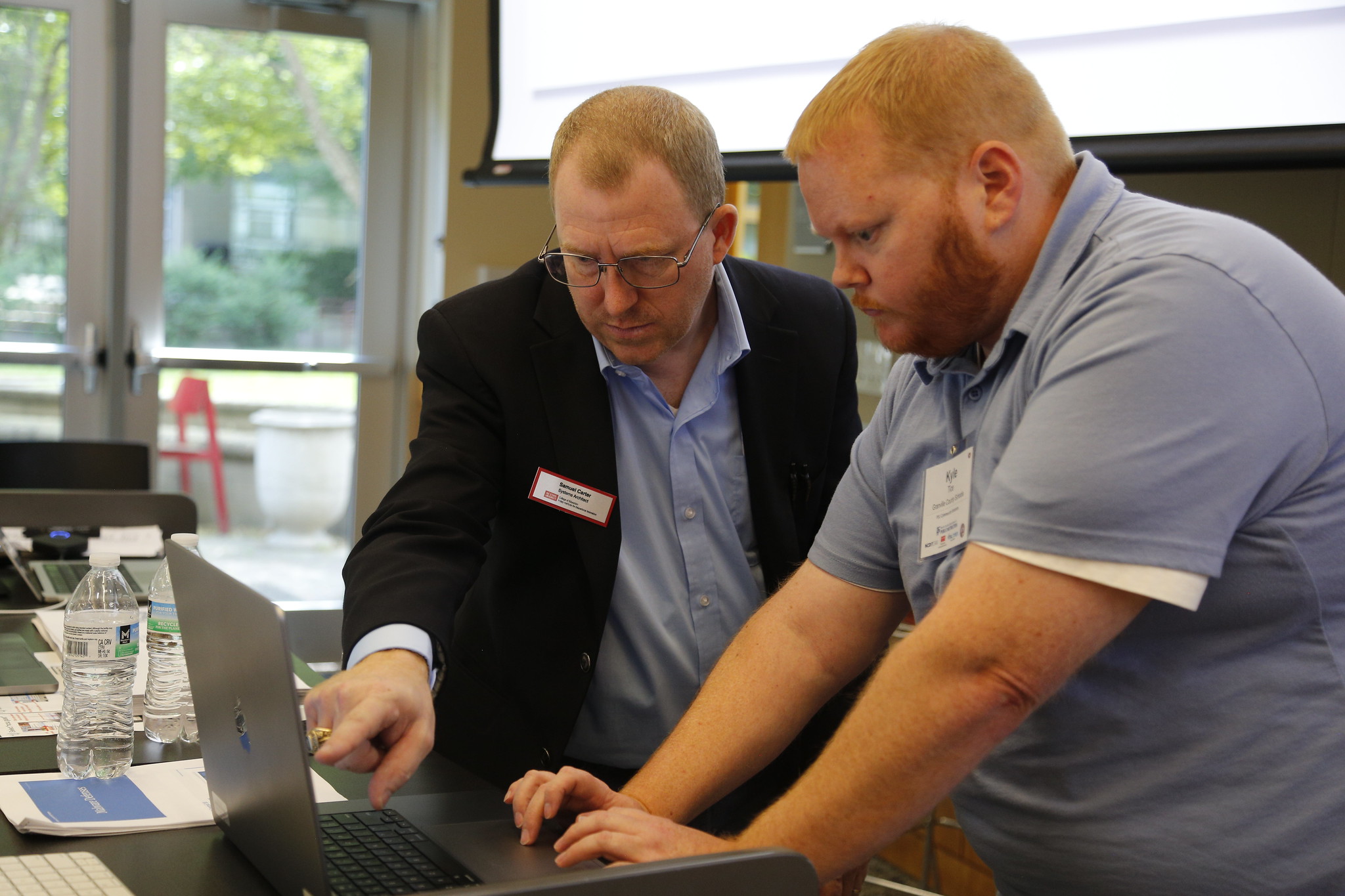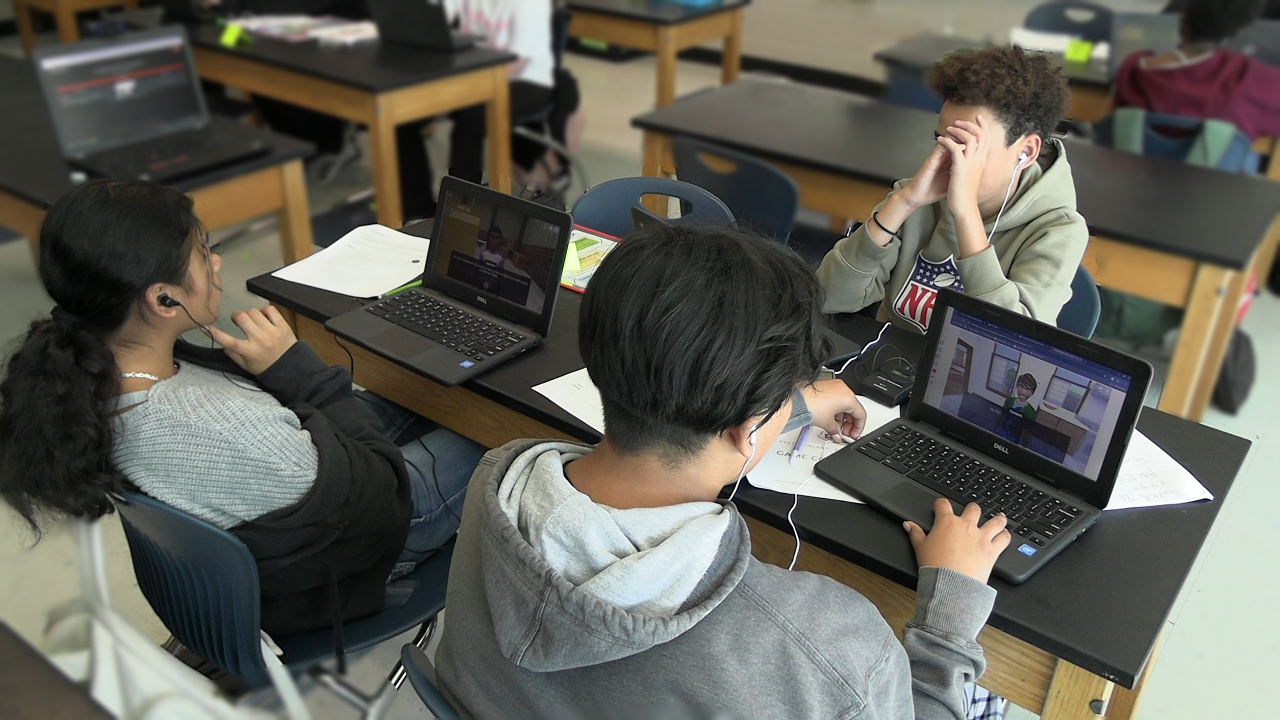Charlotte-Mecklenburg Schools Highlight Key Elements for Success in Personalized Learning
Three Schools Select Different Paths to Success
Charlotte, NC – Today The Friday Institute for Educational Innovation at NC State University’s College of Education and Charlotte-Mecklenburg Schools (CMS) released an in-depth case study on CMS’ Personalized Learning (PL) efforts. Personalizing the Paths to Personalized Learning: Meeting Students and Teachers Where They Are focuses on three schools with diverse backgrounds and journeys.
In 2013 when CMS began working with individual schools on their PL plans there was a recognition that the best avenue for success was in implementing a grassroots approach, grown organically and organized from the bottom-up.
Grand Oak Elementary School, Ridge Road Middle School, and Newell Elementary School are the three schools highlighted in the case study. Each school is following its own path in their personalized learning (PL) journey—creating their own vision for their school and finding success and hurdles along the way. While each school is unique, they share common goals in personalizing learning for their students. All three seek to meet students where they are, guide them towards fulfilling their potential, and impart a sense of ownership of learning and efficacy in the process.
CMS schools agree that the transition to PL is a work in progress. Each school is at a different place in its transition, but each has also made significant progress toward their PL goals. While each of these schools has unique contexts, students, communities, administrators, and teachers, several themes emerged across the schools. The themes include:
- Shared culture;
- Professional learning;
- Student-centered and student-driven teaching and learning; and
- Whole child and social and emotional learning (SEL).
The case study provides recommendations for schools looking to transition to personalized learning. These include:
- Provide purposeful leadership and support from the district level;
- Consider and respect the complexity of PL;
- Invest in human capacity;
- Lead with culture, trust, and agency; and
- Ensure learning is at the core.
CMS students and teachers who have made the transition to PL all say that they wouldn’t want to return to a traditional classroom model of learning. Teachers find they get to know their students better and get to work in collaboration with other teachers and administrators in ways that are challenging and encouraging of their own learning. Students and teachers feel more engaged and more confident in their own learning. According to Emma, a student at Ridge Road Middle School, is that it “lets you do you.” Kaelin, another student at Ridge Road Middle School, advises teachers to use a PL approach to help them connect with students on a personal level. “Get to know your students.” The more teachers and students get to know each other, the more they trust. That trust enables learning to flourish.
The case study includes specific examples about lessons learned directly from administrators, teachers, and students. The context, challenges, and opportunities are also presented for each theme and recommendation.
For more information about Personalizing the Paths to Personalized Learning: Meeting Students and Teachers Where They Are, visit http://go.ncsu.edu/oveh3k.
About the Professional Learning and Leading Collaborative at the Friday Institute for Educational Innovation
Since 2007, the Professional Learning and Leading Collaborative (PLLC) at the Friday Institute for Educational Innovation has emphasized leadership in and promoted pedagogical shifts to personalized and digital learning in order to inspire, innovate, and coach. We engage educators at all levels to provide research based, job-embedded models and approaches for strategic planning and professional development with the belief that all students deserve access to equitable, personalized learning experiences. To learn more, visit fi.ncsu.edu/teams/pllc/.
About Charlotte-Mecklenburg Schools
Charlotte-Mecklenburg Schools is a nationally recognized, county-wide school district. Serving more than 150,000 students in grades Pre-K through 12, 19,000 CMS employees guide all students to become globally competitive. Together, educators, staff and students have earned CMS widespread acclaim as one of America’s best school districts.
- Categories:


